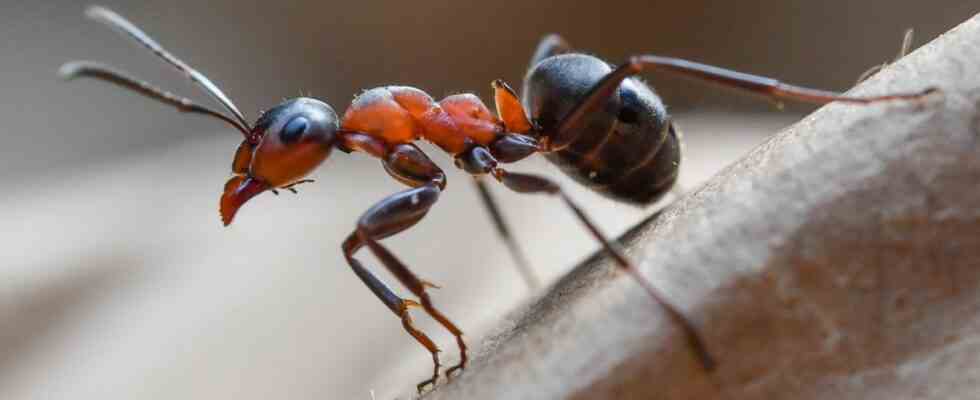What do humans and ants have in common? They are everywhere. There are ants on every continent. But despite their ubiquity, there is still a lot that is not known about these insects, which, like bees and wasps, belong to the Hymenoptera order. For example, how many ants are there anyway. A team led by biologist Patrick Schultheiss from the University of Hong Kong in the science journal PNAS now presented a new estimate: According to this, 20 quadrillion ants live on earth.
According to the researchers, this corresponds to a biomass of twelve megatons of carbon. That’s more than the combined biomass of all birds and mammals except humans. The researchers arrived at the staggering figure of 20 quadrillion by evaluating 465 studies that counted ants in 1,306 locations around the world. The researchers assigned the locations for which precise counts were available to specific landscape types such as “tropical rainforest” or “deserts and dry scrubland”. Then they determined the average ant density per square meter in the examined area and extrapolated this value to the part of the earth’s surface where the corresponding landscape type occurs. They then added up the global values for the different types of landscape.
The insects hunt together in huge armies.
Most ants are found in the tropics and subtropics. It is also where most of the different species live. The tropical giant ant, up to 35 millimeters in size Paraponera clavata for example, whose stinger contains the poison poneratoxin. The workers, who hunt alone, use this to paralyze their prey – usually other insects. The poison of the giant ant causes indescribable pain in humans. Their sting is considered the most painful insect bite ever. Victims report that it feels like being burned alive. After 24 hours, the pain subsides, which is why the species is also known as the 24-hour ant.
Or the dreaded driver ants, of which there are around 200 different species in the tropics. The insects hunt together in huge armies and can devour an entire area in a very short time. The famous American ant researcher Edward Wilson, who died last year, once described them “like a single animal with millions of mouths and spines” and described them as “the most terrifying phenomenon in the insect world”.
After the study in PNAS there are 15,700 known ant species and subspecies worldwide and probably just as many that have not yet been described. The influence of the ants on other creatures is gigantic, if only because of their large numbers, writes Patrick Schultheiss’ team. In addition, ants interact with other living beings in many different ways.
For example, many species play an important role in plant dispersal by bringing seeds, spores, or fruit to new locations. Biologists refer to this as myrmecochoria. Plants that spread with the help of ants use a trick: everything they want the ants to transport, they attach a so-called elaiosome, a nutrient-rich appendage that attracts the ants and induces them to put, for example, a seed inside it to carry the nest. After the insects have separated the elaiosome, the seed either stays in the nest or is taken out again. In both cases, the plant’s goal is achieved, to take its seed to a distant place where it has a chance to germinate.
The insects can dig up to 13 tons of soil per year and hectare.
In Germany, for example, snowdrops spread in this way, as well as liverworts and celandine. How important this function of the ants is can be seen, for example, in South Africa, where native ant species are being pushed out by the immigrant Argentine ant Linepithema humile. Unlike native ants, this species does not transport seeds, which in some places has resulted in changes in the composition of shrubland plants.
Ants are also often closely linked to other animals, for example in the form of a “trophobiosis”. This is a relationship between two living beings in which one organism provides food to the other and receives something in return. The best-known example is the relationship between aphids, which shed honeydew in exchange for protection from ants. In many ecosystems, ants are both predators and prey at the same time: Wood ants, for example, are an important food source for woodpeckers and even eat pests such as the bark beetle.
Ants also have a tremendous impact on their inanimate environment. According to the authors of the study, this is evident from the fact that the insects dig up to 13 tons of soil per year and hectare. Like humans, ants are ecosystem engineers who can permanently change their environment and thus the conditions for other living beings.

